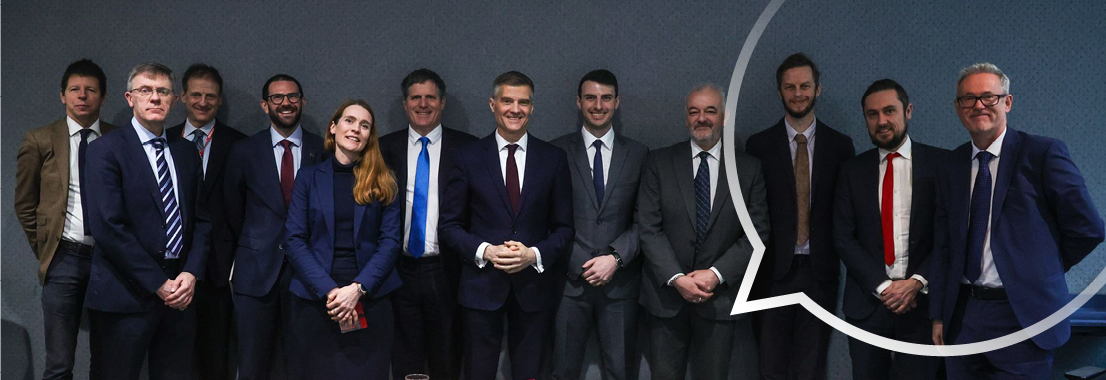
RoSPA’s Steve Cole sits at Automated Vehicles Bill roundtable
RoSPA’s Steve Cole sits at Automated Vehicles Bill roundtable
RoSPA headed to Westminster last week to discuss the Automated Vehicles Bill.
The Royal Society for the Prevention of Accidents proudly participated in a government round table discussing the automated vehicles roundtable with the Rt Honourable Mark Harper MP Secretary of State for Transport, Parliamentary Under Secretary of State Anthony Browne MP and other influential organisations last week.
Steve Cole, Director of Policy, Campaigns and Public Affairs at RoSPA visited Westminster for the event, where he discussed various important elements of the Bill. From whether the proposed safety standards go far enough, to how automated vehicles impact the driving test, the day marked the start of an ongoing discussion that’s only set to get more complex the faster technology progresses.
Steve Cole, Director of Policy, Campaigns and Public Affairs at RoSPA, said:
“We were delighted to take part in the government’s round table discussion on automated vehicles and look forward to playing a key role in ensuring the intricacies around legislation, infrastructure and safety are considered.
“While we’re making great progress in the automated vehicle sector, we want to ensure that we don’t lose sight of safety, which is why we look forward to further consultation and development.”
What does the Bill propose?
Sets a safety framework for self-driving vehicles
Sets a threshold for self-driving vehicles in law
It is proposed that only vehicles that can drive themselves safely and can follow all road traffic rules without the need for a human to monitor or control the vehicle to maintain that level of safety will be classified as self-driving and allowed on our roads.
It is proposed that The Department for Transport and its agencies will be given new powers to authorise these vehicles and ensure in-use compliance with the safety standards.
Holds companies accountable
Companies will be required to meet safety standards or fact sanctions and penalties. Criminal offences will apply in serious cases.
Investigate and learn from incidents
Processes are set out to investigate incidents involving these vehicles.
Digitalise traffic regulation orders
Local authorities will be required to send legal orders they make e.g. speed limits and road closures to a central publication. This will allow a digital map to be created which supports the safe operation of self-driving vehicles.
Clarifies legal responsibility
Creates new organisations responsible for self-driving
While the vehicle is in self-driving mode, a company rather than an individual is responsible for the way in which the vehicle drives. The responsibilities of these companies are set out and the company will need to keep their vehicles safe and ensure they comply with British road laws.
Protects users from being unfairly held accountable
Offers immunity to people when a self-driving vehicle is driving itself, but non-driving responsibilities remain with that person, such as having the correct insurance, appropriately loading the vehicle, and driving responsibility in any part of the journey where the person is driving.
Protects the consumer
Clamping down on misleading marketing
The Bill prohibits misleading marketing, as only vehicles that meet the safety threshold can be marketed as self-driving. For all other vehicles, the driver is always responsible.
How could the Automated Vehicles Bill affect you and your organisation? We’d love to know.
Already a member? Login to MyRoSPA to read more factsheets

Login to you MyRoSPA account
Login to MyRoSPA to view more exclusive content
Login
| Join RoSPA
Become a member now
Become a member to access MyRoSPA to view more exclusive content
Join
Check out upcoming and previous webinars in the Events area of MyRoSPA

Login to you MyRoSPA account
Login to MyRoSPA to view some more exclusive content
Login
| Join RoSPA
Become a member now
Become a part of the MyRoSPA team to view more exclusive content
Register